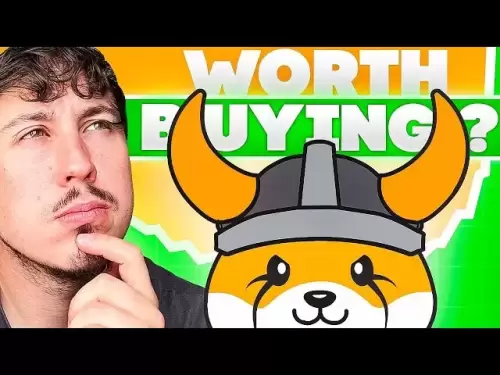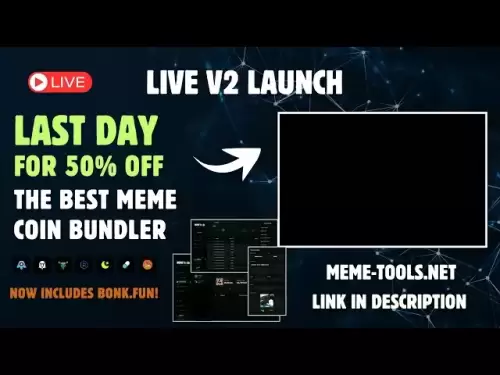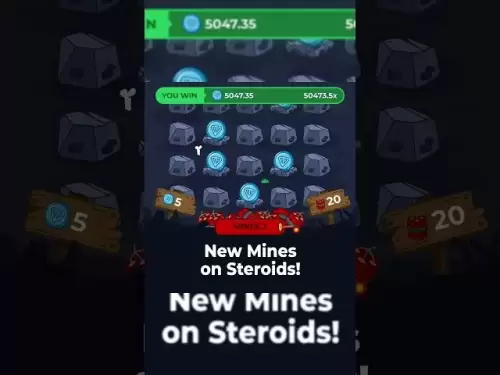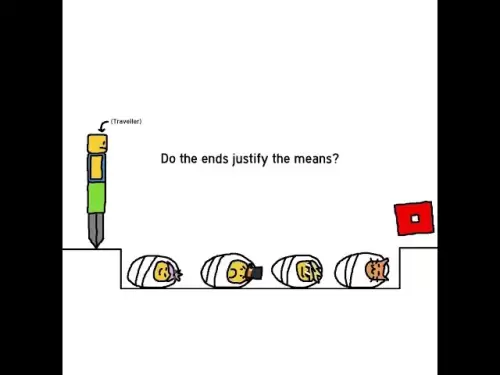-
 Bitcoin
Bitcoin $118,698.3676
0.16% -
 Ethereum
Ethereum $3,428.4877
5.97% -
 XRP
XRP $3.2496
9.52% -
 Tether USDt
Tether USDt $1.0002
0.00% -
 BNB
BNB $725.6930
4.36% -
 Solana
Solana $174.8923
4.52% -
 USDC
USDC $0.9997
-0.02% -
 Dogecoin
Dogecoin $0.2139
6.02% -
 TRON
TRON $0.3155
4.62% -
 Cardano
Cardano $0.8045
7.12% -
 Hyperliquid
Hyperliquid $46.6582
-1.72% -
 Stellar
Stellar $0.4676
0.80% -
 Sui
Sui $4.0143
0.38% -
 Chainlink
Chainlink $17.1546
2.97% -
 Hedera
Hedera $0.2458
3.27% -
 Bitcoin Cash
Bitcoin Cash $496.5967
-0.06% -
 Avalanche
Avalanche $22.8813
3.13% -
 Shiba Inu
Shiba Inu $0.0...01439
3.42% -
 UNUS SED LEO
UNUS SED LEO $8.8389
0.42% -
 Toncoin
Toncoin $3.2113
2.82% -
 Litecoin
Litecoin $101.2646
4.24% -
 Polkadot
Polkadot $4.2262
2.32% -
 Monero
Monero $340.4295
2.92% -
 Pepe
Pepe $0.0...01365
2.92% -
 Uniswap
Uniswap $8.9702
-2.78% -
 Bitget Token
Bitget Token $4.7675
2.00% -
 Dai
Dai $0.9998
-0.02% -
 Ethena USDe
Ethena USDe $1.0003
-0.04% -
 Aave
Aave $324.6394
-2.11% -
 Bittensor
Bittensor $433.6051
-0.88%
What rights do you get when you buy an NFT?
Buying an NFT grants ownership of a unique blockchain token, but not necessarily the copyright or usage rights to the linked digital content.
Jul 09, 2025 at 12:28 pm
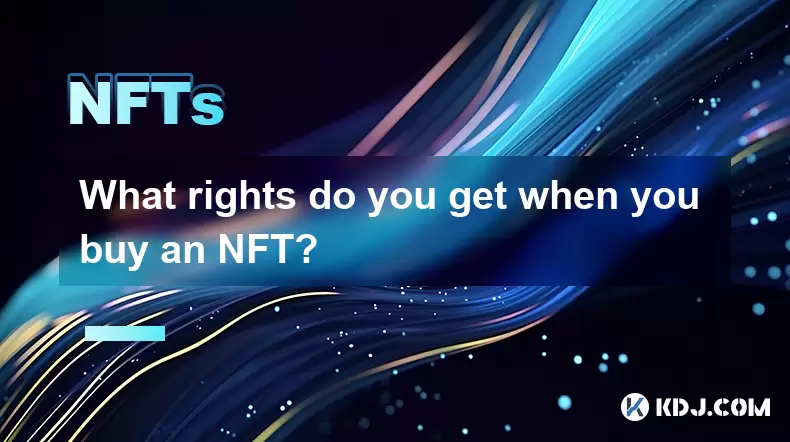
Understanding NFT Ownership
When you buy an NFT (Non-Fungible Token), you're purchasing a unique digital asset that is stored on the blockchain. This ownership is verifiable and immutable due to the nature of blockchain technology. However, it's crucial to understand that buying an NFT does not always equate to owning the underlying content or its intellectual property rights. The digital token itself represents proof of ownership of a specific item or piece of content, such as digital art, music, videos, or virtual real estate.
The blockchain ledger records your transaction and confirms your possession of the NFT. This means others can view the NFT, but only the owner has the right to transfer or sell it. Each NFT contains metadata that distinguishes it from other tokens, making it one-of-a-kind or scarce within its collection.
Digital vs. Copyright Ownership
One of the most common misunderstandings about NFTs is the difference between owning the token and owning the copyright to the associated media. In most cases, when you purchase an NFT, you do not automatically gain the copyright to the image, video, or audio file linked to it. The creator retains those rights unless explicitly transferred through a separate agreement.
For example, if you buy an NFT of a digital painting, you own the token representing that painting, but the artist still holds the copyright. This distinction allows the creator to reproduce, distribute, and display the work publicly unless otherwise restricted by contract. Therefore, it’s essential to read the terms of sale carefully before completing any NFT transaction.
Usage Rights and Licensing Agreements
Some NFTs come with usage rights or licenses, which may allow the owner to use the associated content in certain ways. These rights vary widely depending on the creator's intent and the platform’s policies. For instance, some creators grant commercial usage rights to the NFT owner, while others restrict usage to personal display only.
It is vital to check the smart contract code or the terms of service provided by the NFT marketplace. These documents outline what you are allowed to do with the digital asset. Some high-profile NFT projects, like Bored Ape Yacht Club, offer commercial rights to their holders, enabling them to monetize the images for merchandise, branding, or other business purposes.
Provenance and Authenticity Verification
One of the core values of NFTs lies in their ability to prove authenticity and provenance. Since each NFT is recorded on the blockchain, anyone can trace its history back to the original creator. This feature provides transparency and trust, especially in the digital art world where forgery and plagiarism are concerns.
By owning an NFT, you gain the ability to verify the origin of the digital asset and ensure that it hasn’t been altered or duplicated without authorization. This verification process is handled through cryptographic signatures embedded in the blockchain, offering a level of security that traditional digital files cannot provide.
Transferability and Resale Rights
Another key aspect of NFT ownership is the right to transfer or resell the token. Unlike traditional digital files that can be copied infinitely, NFTs have a single verified owner at any given time. You can choose to sell your NFT on secondary marketplaces such as OpenSea, LooksRare, or Blur, often retaining the ability to profit from future sales.
In some cases, creators include royalty mechanisms in the smart contracts, allowing them to receive a percentage of proceeds every time the NFT is resold. As an owner, you should be aware of these conditions since they affect how much you earn upon resale. These royalties are typically enforced automatically via the blockchain whenever a transaction occurs.
Frequently Asked Questions
- Can I lose my NFT if the platform shuts down?
If you store your NFT in a wallet that you control, the shutdown of a marketplace won't affect your ownership. Your NFT remains on the blockchain, and you can access it through compatible wallets even if the original platform no longer exists. - Do I need special software to view my NFT?
You don’t necessarily need special software, but you do need a compatible crypto wallet like MetaMask or Trust Wallet. Most NFTs are accessible via platforms like OpenSea or Rarity.tools, which display the visual content linked to the token. - What happens if I lose my private keys?
Losing your private keys means losing access to your wallet and all assets inside it, including NFTs. There is no recovery mechanism like a password reset, so safeguarding your seed phrase is critical. - Are NFTs considered legal assets?
In many jurisdictions, NFTs are treated as digital assets and fall under property laws. However, their legal classification varies globally, and regulations around NFTs continue to evolve based on local financial and intellectual property laws.
Disclaimer:info@kdj.com
The information provided is not trading advice. kdj.com does not assume any responsibility for any investments made based on the information provided in this article. Cryptocurrencies are highly volatile and it is highly recommended that you invest with caution after thorough research!
If you believe that the content used on this website infringes your copyright, please contact us immediately (info@kdj.com) and we will delete it promptly.
- Bitcoin, MSTR & Saylor's Strategy: A Winning Trifecta?
- 2025-07-18 08:30:13
- Bitcoin Mortgages Down Under: A New Wave in Australian Homeownership?
- 2025-07-18 08:50:12
- Cryptocurrencies, Bitcoin, and the Next Wave: What's Coming?
- 2025-07-18 08:50:12
- Maharashtra Government Nurses Launch Indefinite Strike: A Healthcare Crisis?
- 2025-07-18 04:30:13
- Hilbert Group, Syntetika, and Tokenization: Bridging DeFi and Institutional Finance
- 2025-07-18 05:30:12
- Crypto Regulation in the US House: Decoding the CLARITY Act and What It Means for You
- 2025-07-18 04:30:13
Related knowledge
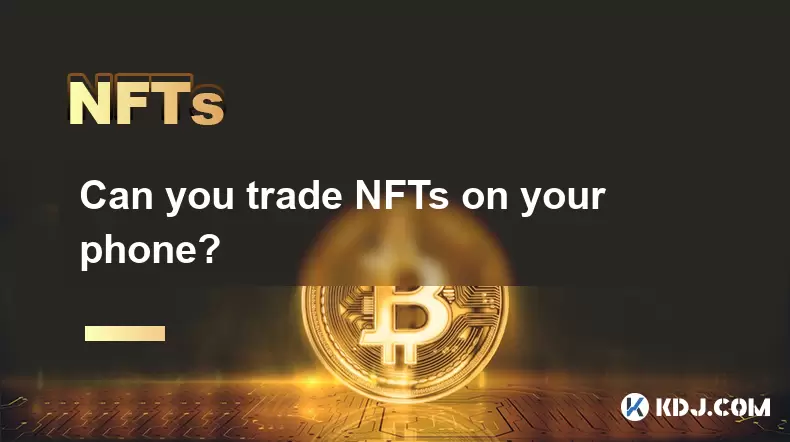
Can you trade NFTs on your phone?
Jul 18,2025 at 04:29am
Trading NFTs on Mobile DevicesYes, you can trade NFTs on your phone, and the process has become increasingly streamlined thanks to a variety of mobile...
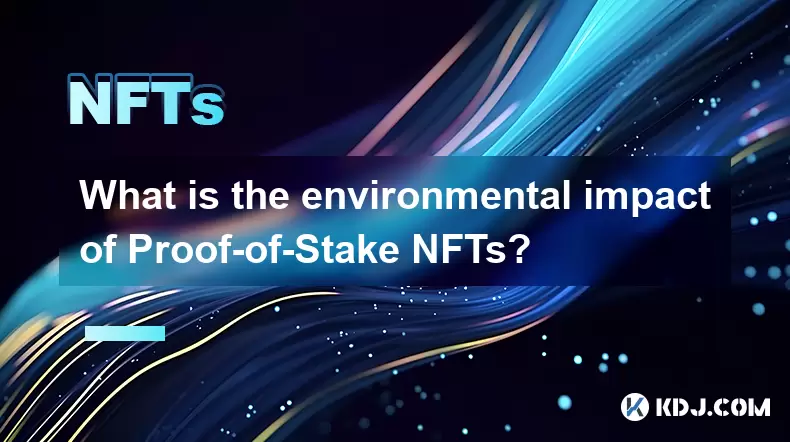
What is the environmental impact of Proof-of-Stake NFTs?
Jul 17,2025 at 07:14pm
Understanding the Basics of Proof-of-Stake NFTsProof-of-Stake (PoS) is a consensus mechanism used by blockchain networks to validate transactions and ...
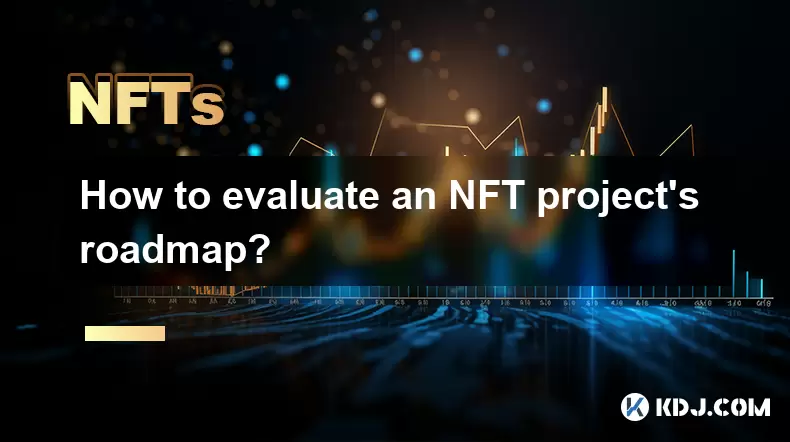
How to evaluate an NFT project's roadmap?
Jul 18,2025 at 01:21am
Understanding the Basics of an NFT Project RoadmapAn NFT project's roadmap is a strategic document that outlines the short-term and long-term goals of...
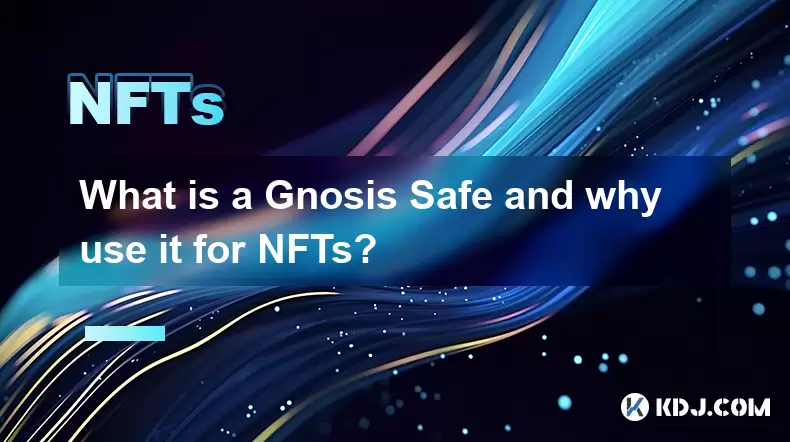
What is a Gnosis Safe and why use it for NFTs?
Jul 18,2025 at 05:57am
Understanding the Gnosis SafeA Gnosis Safe is a multi-signature wallet developed by the Gnosis team, which allows users to manage digital assets with ...
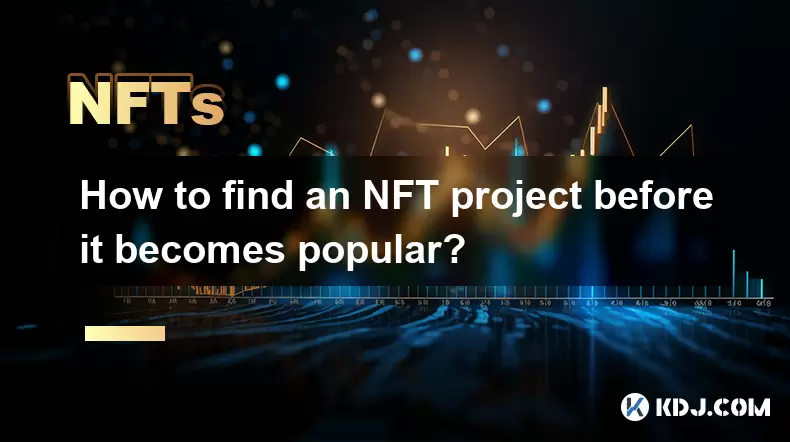
How to find an NFT project before it becomes popular?
Jul 17,2025 at 11:28pm
Understanding the NFT Landscape Before It TrendsThe non-fungible token (NFT) market has seen explosive growth, with some projects skyrocketing in valu...
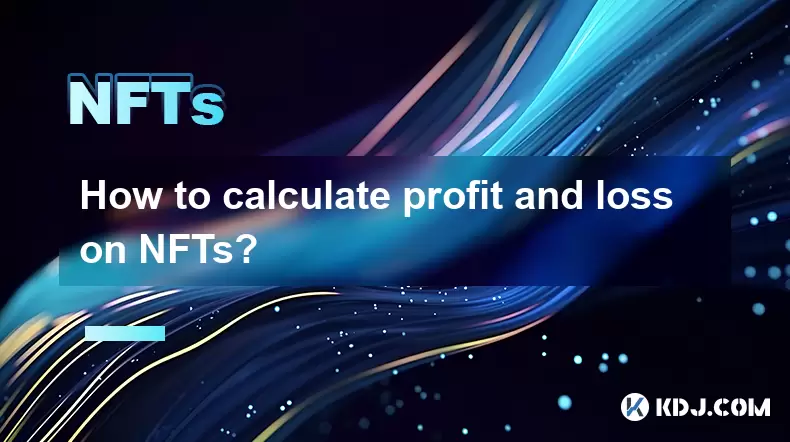
How to calculate profit and loss on NFTs?
Jul 17,2025 at 10:07pm
Understanding the Basics of NFT Profit and Loss CalculationWhen it comes to Non-Fungible Tokens (NFTs), calculating profit and loss is crucial for inv...

Can you trade NFTs on your phone?
Jul 18,2025 at 04:29am
Trading NFTs on Mobile DevicesYes, you can trade NFTs on your phone, and the process has become increasingly streamlined thanks to a variety of mobile...

What is the environmental impact of Proof-of-Stake NFTs?
Jul 17,2025 at 07:14pm
Understanding the Basics of Proof-of-Stake NFTsProof-of-Stake (PoS) is a consensus mechanism used by blockchain networks to validate transactions and ...

How to evaluate an NFT project's roadmap?
Jul 18,2025 at 01:21am
Understanding the Basics of an NFT Project RoadmapAn NFT project's roadmap is a strategic document that outlines the short-term and long-term goals of...

What is a Gnosis Safe and why use it for NFTs?
Jul 18,2025 at 05:57am
Understanding the Gnosis SafeA Gnosis Safe is a multi-signature wallet developed by the Gnosis team, which allows users to manage digital assets with ...

How to find an NFT project before it becomes popular?
Jul 17,2025 at 11:28pm
Understanding the NFT Landscape Before It TrendsThe non-fungible token (NFT) market has seen explosive growth, with some projects skyrocketing in valu...

How to calculate profit and loss on NFTs?
Jul 17,2025 at 10:07pm
Understanding the Basics of NFT Profit and Loss CalculationWhen it comes to Non-Fungible Tokens (NFTs), calculating profit and loss is crucial for inv...
See all articles





















